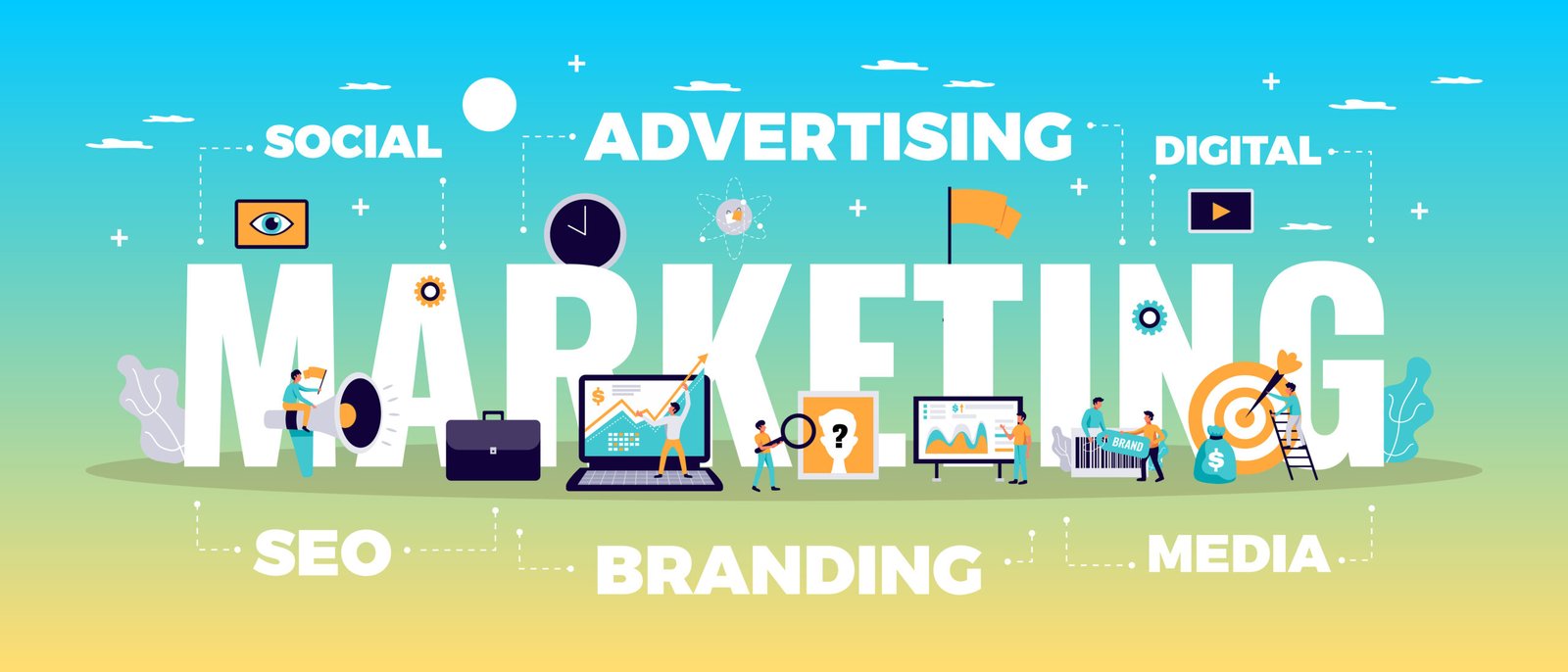Digital Marketing Job : What You Need to Know
1. Introduction
Digital marketing encompasses all the activities businesses undertake online to reach customers, from Facebook posts to search ads.
A digital marketer’s role involves planning, executing, and monitoring those online efforts to ensure businesses grow and maintain visibility.
Nowadays, nearly every brand’s existence hinges on its online presence, making digital marketing one of the most sought-after career fields.
2. What Does a Digital Marketing Job Entail ?
Daily tasks may vary, but most responsibilities fall into these categories:
Social Media Marketing: Creating posts, stories, and ads for platforms such as Instagram, Twitter, and TikTok.
Search Engine Optimisation (SEO): Modifying web pages to improve their ranking in Google searches.
Content Marketing: Producing blogs, videos, and guides that attract visitors and foster trust.
Email Marketing: Designing newsletters that inform and convert subscribers.
Paid Ads: Setting up and managing campaigns on Google, Facebook, and other platforms.
Strategy: Integrating all efforts with goals, budgets, timelines, and clear metrics for measuring success.
3. Skills Required for a Digital Marketing Job
Technical skills are essential, so you should be familiar with the basics of SEO, Google Analytics, and a bit of HTML/CSS.
Creativity is also crucial; you will write, take photos or videos, and even create quick graphics.
Analytical skills enable you to interpret data, conduct A/B tests, and identify what truly influences outcomes.
Do not overlook soft skills—you will need to explain concepts to clients, collaborate with designers, and keep teams aligned.
3. Skills Required for a Digital Marketing Job
Technical skills are essential, so you should be familiar with the basics of SEO, Google Analytics, and a bit of HTML/CSS.
Creativity is also crucial; you will write, take photos or videos, and even create quick graphics.
Analytical skills enable you to interpret data, conduct A/B tests, and identify what truly influences outcomes.
Do not overlook soft skills—you will need to explain concepts to clients, collaborate with designers, and keep teams aligned.
4. Tools of the Trade
Marketers rely on Google Analytics, HubSpot, SEMrush, Mailchimp, Hootsuite, Canva, and Google Ads on a daily basis.
Choose tools that match your role; a social media expert uses Hootsuite, while an SEO specialist frequently utilises SEMrush.
5. Qualifications and Education for a Digital Marketing Job
A marketing degree is not essential, but understanding the fundamentals is beneficial; many professionals have backgrounds in business, journalism, or IT.
Short, focused online courses—certificates from Google, HubSpot, and Hootsuite—can quickly bridge gaps in knowledge.
Practical experience is more valuable than theory, so seek internships, freelance opportunities, or start your own blog today.
6. Career Path and Job Opportunities
Begin as a Digital Marketing Assistant or Social Media Manager, often learning from senior colleagues.
After a few years, progress to mid-level positions like SEO Specialist, Content Strategist, or PPC Analyst.
With a proven track record, you can advance to senior roles such as Digital Marketing Manager or even Chief Marketing Officer (CMO).
Many professionals also choose to freelance, establish their own agencies, or provide niche services to monetise their skills.
7. Challenges Faced by Digital Marketers
- Keeping up to date with constantly changing algorithms and trends: Search engines, social media platforms, and even advertising networks frequently modify their rules. If marketers fail to adapt, their campaigns can falter overnight. Continuous learning is no longer optional.
- Measuring ROI on marketing campaigns: Data streams in from numerous channels, yet correlating those figures to real profits can feel like assembling a jigsaw puzzle with missing pieces. Marketers require more sophisticated tools and clearer objectives to demonstrate effectiveness.
- Balancing creative and analytical elements: Effective advertisements narrate stories, yet decisions still depend on click rates, conversion funnels, and A/B tests. Experts in the field learn to blend intuition with data analysis without compromising either aspect.
- Overcoming content saturation: Timelines are inundated with blog posts, memes, and videos. Standing out demands innovative ideas, optimal timing, and occasionally, discovering trends before they become mainstream.
8. The Future of Digital Marketing Jobs
- The impact of AI and automation on digital marketing: Chatbots, machine-learning recommendations, and auto-optimising ads currently alleviate workloads. While some roles may diminish, new opportunities arise for individuals capable of training, supervising, and interpreting AI technologies.
- Emerging trends: Voice search, video marketing, influencer marketing: Smart speakers, short-form content, and everyday creators are taking centre stage. Marketers who explore these formats now will capture the audiences that grow alongside them.
- The increasing significance of data privacy and security: Legislation such as GDPR and public concern regarding tracking compel marketers to reassess their data collection and storage methods. Compliant, transparent practices not only circumvent penalties; they also foster customer trust more rapidly.
9. How to Start a Career in Digital Marketing
- Tips for breaking into the industry: Search for entry-level roles that stress curiosity more than experience. Skills can be taught, but a genuine hunger to learn sets candidates apart.
- Networking, internships, and gaining hands-on experience: Reach out on LinkedIn, volunteer for small projects, or land a brief internship. Real-world practice reveals what theory misses and helps people build useful connections.
- Building a personal brand and portfolio: Publish a blog post, run a tiny social campaign, or organise a mock Google ad. Document the process, share the results online, and invite feedback. A growing digital portfolio proves capability long before formal titles arrive.
10. Conclusion
The increasing demand for digital marketers: Every business, big or small, now lives online. That migration fuels an unending appetite for skilled marketers who turn clicks into conversations and sales.
Final thoughts on the evolving nature of digital marketing careers: The tools, channels, and regulations will keep changing. Flexible learners, creative problem-solvers, and those who balance art with data will thrive in this fast-paced, rewarding field.
